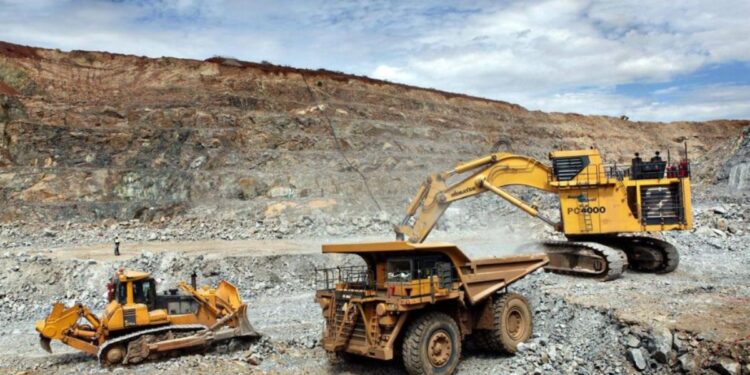Perseus Mining, an Australian-based mining company, has announced that it will move forward with the development of the Nyanzaga Gold Project (NGP) in Tanzania. This decision follows an update on the feasibility of the project and successful engagement with the Tanzanian government.
The company reported that it had committed US$523 million (approximately 1.4 trillion Tsh) for the development and preparation for the operation of the mine, which is expected to produce its first gold in the first quarter of 2027. This will be financial through interest-free, intercompany loans provided by Persus’ existing cash and bullion reserves.
The project, which is located 60km southwest of Mwanza, is expected to produce an average of over 200,000 ounces of gold annually and approximately 2.01 million ounces of gold over the 11-year lifespan.
Once operational, the project will enhance Tanzania’s mining reputation. It will also be expected to create approximately 1,000 permanent jobs for the locals.
Perseus has already spent approximately US$27.5 million on early works such as site establishment, temporary construction accommodation, bulk earthworks, and implementing the Relocation Action Plan. However, the project is set to have significant economic returns based on current gold prices.
“Perseus is very excited by its decision to proceed with the development of the Nyanzaga Gold Project and is looking forward to working alongside the Government of Tanzania to deliver a world-class mining operation,” Jeff Quartemine, Perseus’ Managing Director and CEO said.
Nyanzaga Gold Project adds to Perseus Mining’s existing gold mines in Africa, which includes Edikan in Ghana and Sissingué and Yaouré in Côte d’Ivoire.
“With the development of the Nyanzaga Gold Project, Perseus continues to strengthen its claim to be recognized as one of the leading gold producers operating on the African continent,” Quartemine noted.
Tanzania is a significant gold producer in Africa, with an annual production of about 50 tonnes. The mining sector contributes significantly to the country’s GDP and is a crucial source of foreign exchange earnings.
Related: Kenya Poised to Overtake Ethiopia as East Africa’s Largest Economy in 2025, IMF




